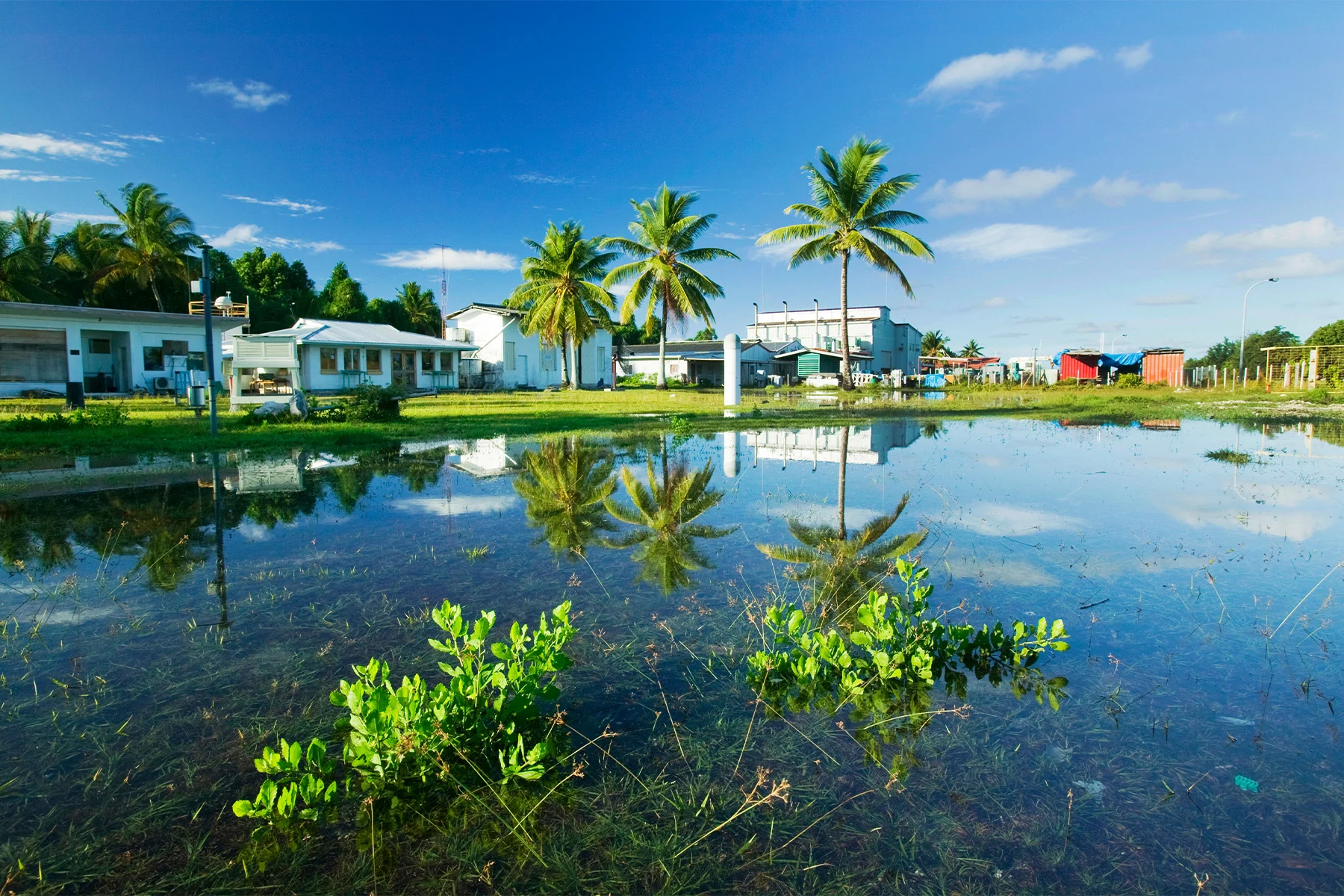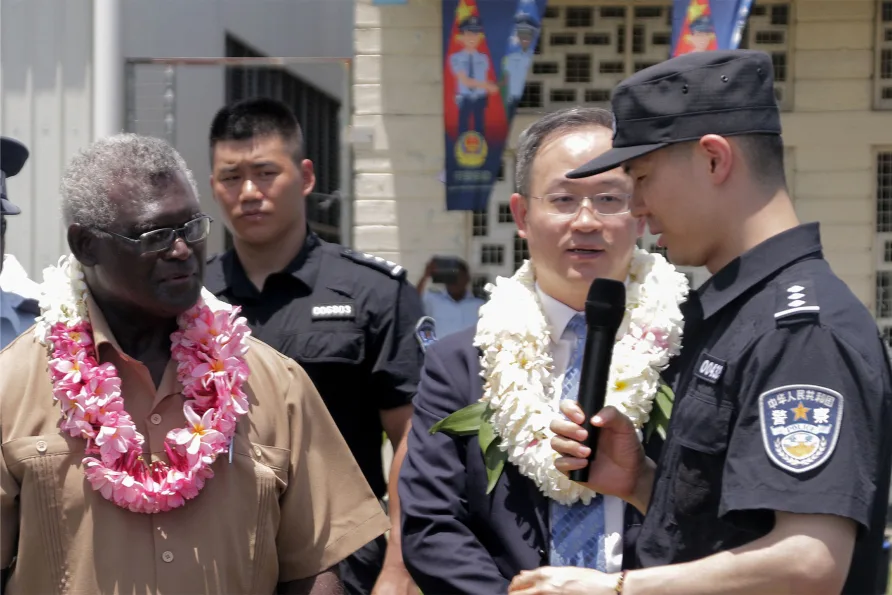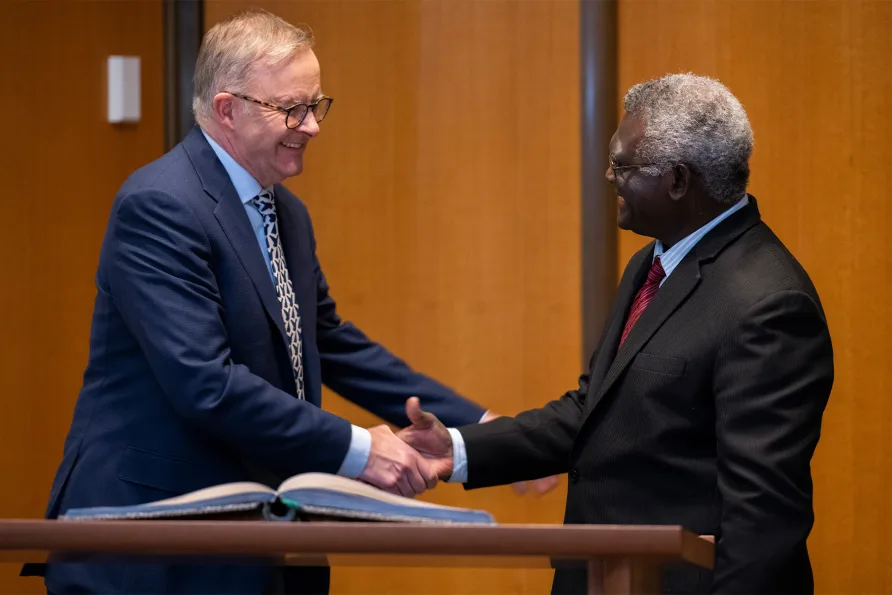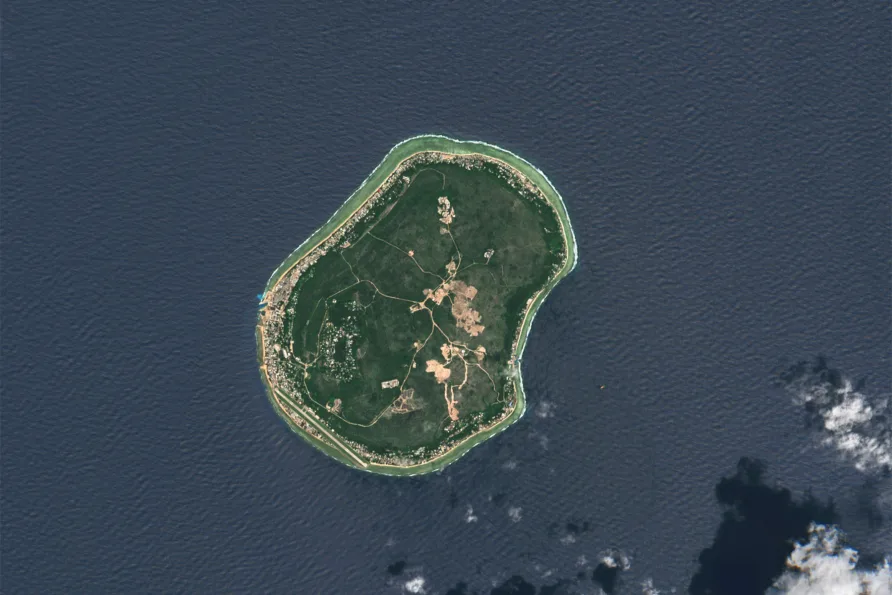
Australia and China should cooperate for the security of Pacific Island Countries

Rivalry between Australia and China in the South Pacific is harming the prosperity of the region
Published 7 May 2024
The increasing presence of the Chinese government and its firms in the South Pacific is framed as a security risk to Australia and its allies, with the peace and prosperity of Pacific Island countries themselves a secondary concern.
This growing rivalry is leading to increased military spending and hasty development commitments, which undermines their mutual security as well as the prosperity of the Pacific Islands.
The alternative – greater cooperation between Australia and China to support the security and development ambitions of Pacific Island countries – could instead yield benefits for the region.

The security risks that most concern Pacific Island countries are clear – health and climate. For example, non-communicable diseases account for around 75 per cent of premature deaths in the region. The region also has some of the highest rates of gender-based violence in the world.
And climate change increasingly undermines human health, livelihoods, food security and the very sovereignty of many countries, as expressed in the Boe Declaration on Regional Security.
Pacific Island leaders use whatever resources they have at their disposal to tackle these existential challenges. They understand that China is no more a cause of these challenges than Australia or its allies.

Indeed, China was never a colonial power in the South Pacific, it does not have military bases or offshore detention centres in the region, its historical and current per capita greenhouse gas emissions are far less than that of Australia, and it has never tested nuclear weapons in the region or mined islands like Banaba and Nauru to their bedrock.
Pacific Island people remember these acts, even if Australia and its allies choose to forget.
As sovereign nations, most Pacific Islands countries have the legal right to be free from interference from other countries – including Australia and China – and to choose with whom they make treaties.
Like all countries, they make treaties that are primarily in their best interests and they have the right to change their mind about them – as the new Tuvaluan government may do with the 2023 Falepili Union with Australia.

A THREAT, OR AN OPPORTUNITY?
For Pacific Island countries, China’s growing presence brings some challenges, especially concerning ‘debt traps’ and quality controls over infrastructure. But it also brings opportunities, including access to additional resources to help address their key security challenges.
And even where China does not directly provide support, its presence has stimulated traditional development and security partners to try to improve their efforts to support the region, although with mixed success.
For Australia, too, China’s presence in the region arguably poses no significant risk, except that it troubles the United States, which has long been the military hegemon in the region.

Health & Medicine
On the frontline of family violence in the Asia Pacific
Instead of increasing the rivalry, now is the time for Australia and China to pause and appreciate that neither enters the region with any obviously greater moral superiority or development capability.
Australia’s record of development effectiveness, for example, is mixed. The cutting of AusAid in 2013, offshore processing centres and nuclear submarines all imply that Australia is more interested in its own national security than the wellbeing of Pacific peoples.
Yet Australia has made strong contributions to regional health, as demonstrated through its rapid and effective support for the region during COVID-19.
But in other areas of development like engineering and construction, Australia does not seem able to match China’s capability.
China, too, faces challenges in its rapid expansion in the Pacific Islands. It has hasn’t effectively communicated why it is growing its presence in the region and Australia and China clearly have different perspectives on this.

One key difference lies in their views on geostrategic competition.
Despite what many Australians may think, China’s strategic interest in the Pacific isn’t necessarily aimed at supplanting Australia but rather at reducing Taiwan’s influence in the region.
The Pacific Islands have long been a battleground for diplomatic recognition between the People’s Republic of China and Taiwan. China’s recent advances in limiting Taiwan’s global presence in the region are seen by Chinese authorities as successful, but critics say it has raised the diplomatic stakes in the region.
Another area of perceived disparity is when it comes to military and security collaboration. Australia’s aid package includes support like deploying navy and police forces in Pacific Island countries for extended periods to “enhance the security capability of the Pacific”.

Politics & Society
Stepping carefully amid conflict in the Pacific
While China claims that any presence of Chinese security in the region is an effort to improve skills in community policing.
For example, a group of 12 Chinese trainers were sent to Kiribati – at the request of its government – for a six-month training program to improve the tactics of police officers; something the US says risks raising regional tensions.
WHAT IF WE COOPERATED INSTEAD?
If Australia and China both truly want to help Pacific Island countries tackle their key security challenges, they should work together to maximise the outcomes of their assistance to the region.
This means shared assessments of their respective resources and capabilities in the region, a forum for coordination of their financial and technical support for countries, and joint research programs on key scientific and technical challenges.
Should both parties be willing, cooperation between Australia and China on the shared challenge of supporting the security aspirations of Pacific Island countries would not only better serve those countries, it would also help neutralise the rising geopolitical tensions in the region.
This would provide an important basis for cooperation and confidence building that can help reduce military spending and the risk of future armed conflict.
Banner: Tuvalu is prone to tidal flooding which is exacerbated by climate change/Getty Images


